Luca & The Misunderstood Child
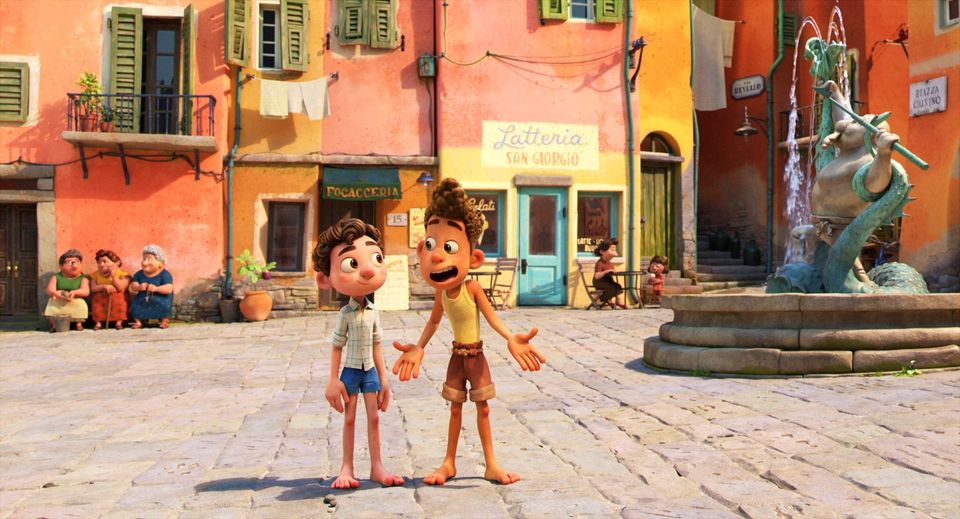
The Deeper Story
Children are the paradigm of paradox. They draw out such depths of affection we didn't even know existed in our emotional wells, yet they frustrate us more than we can even name. We love them, but we can't stand them. Yet even as they continue to astound us by both their sheer imagination and immaturity, a thread runs through it all. Children are irreplaceable. We need them even as they need our care. They change our perspective on the world.
This is a central idea in Luca. Reminiscent of The Little Mermaid, we have a sea creature boy who wants to explore the surface. Against parental wishes, he goes to the human world and is enraptured by its beauties—rusty Vespas. But unlike Ariel, Luca's story is not one of simply becoming part of their world. He bridges two worlds in an enduring way. Ariel's story was about pursuing her dreams, but Luca's is one of inclusion and diversity. This reflects our cultural evolution from 1989. It seems that the core of this story is that children can help us reconcile our differences and lead new lives.
Yet beneath these now familiar cultural themes, there is a more profound story of the heart of the outcast and the story of being known. I do not mean welcoming those who are different from us. I refer to personality, not race or species. We may believe the story is about Luca or sea monsters, but I'm interested in Alberto.
Soon after the movie begins, we find ourselves rooting for Luca. He discovers artifacts from the surface and his imagination blooms. But his parents fail to understand this. There is no connection, no attempt to appreciate his perspective. Against the strict boundaries of his mother, we want him to be able to explore. We see that he is misunderstood, and it makes us sympathetic. He is an underdog, which we love. Our will strengthens. We will not misjudge him.
Yet, for the guardians among us, we also recognize that caution is necessary. Therein lies the inherent difficulty we face daily. We want children to grow independent, but we know they need counsel. Of course, as imperfect guides, we know we make mistakes—we would be wary of anyone who believes otherwise. Thus while the movie draws us more into Luca's plight than his parents', we shall see that that parental instinct remains crucial to our engagement with the story.
The Outcast
All this sets the stage for the story's real hero: Alberto.
Here is a boy who exudes confidence. Not unlike Ariel's friend Scuttle—the dinglehopper twirling, snarfblatt blowing seagull par excellence—Alberto is ready to name and describe all that he sees in the surface world. From fish in the sky to the apparently benign activity of staring at the blazing sun, he is the trailblazer into the human world.
But our initial encounter with him is mixed. We like his free spirit, but he's also childishly ostentatious. He says more than he knows. His directions on how to walk are appalling. He parrots some Italian phrases without a clue about their meaning. He also throws thoughtful caution to the wind, nearly getting himself and Luca killed as they fly over the sea rocks on their homemade Vespa. We're glad Luca is on the surface, but this new friend, well, he leaves something to be desired.
Luca, however, is clueless. He gobbles it all up. It's part of what makes him a great character. But as both a parent and pediatrician, I'm vigilant, even wary of this new friend. Luca has been cloistered and unprepared to deal with the surface world, including people. His views lack nuance. Any caretaker understands this impulse to protect, but it is also what tends to stifle us. Luca's view of Alberto is not parentally coloured. This is where childhood shines and where our misunderstanding begins.
Once the friends enter Portorosso and befriend Giulia, our impression of Alberto deteriorates. He grows jealous of Luca's new friendship, and it shows. He becomes dismissive and unfriendly. Add his impulsive disposition to his dislike of anything Giulia—sensible comments included—and once more, he takes Luca hurtling down a hill on a bike and rocketing off a cliff into the ocean. Even Luca begins to see that Alberto's confidence is unfounded. The fish in the sky are actually stars. Biking into a fence is actually not biking at all. Our initial impressions of this careless character are confirmed. Misunderstanding becomes dislike.
This is the outcast. We don't like him. Some are outcasts because of their creaturely status, but some are so because we make personal evaluations of them and find them wanting. We dislike him not because he's a sea creature but because he's himself.
As a culture, we tend to be sympathetic to the Giulias and the Lucas, from quirky kiddos with big hearts to those who are sidelined for being different. So the story has been fostering our affection for them. Luca is misunderstood, and Giulia is bullied by Ercole and identifies herself as an underdog. The two even share a heart-to-heart under the stars, Giulia as "just some weird kid who doesn't belong" and Luca familiar with the sentiment. In other words, we are partial to the culturally acceptable outcast, which is to say, one who is not an outcast at all.
But Alberto is different, and we feel it. His sharp responses to Giulia make us bristle. We furrow our brows and raise our hands. What's his problem? Despite all our embraces of those who differ from us, we are still impatient with those who appear puffed up and jealous.
If the audience's reservations aren't enough, Alberto must face the pinnacle of rejection from his friends—betrayal. When Alberto finally reveals his nature to Giulia, Luca feigns surprise and calls him a "sea monster." His best friend in the whole world points the finger at him. Then come the hurled harpoons. Alberto is an outcast of the highest level.
This is where we enter into Alberto's troubled past. Alone and brooding, we see the wall markings of days that have passed since he last saw his father. He was cast aside even by his own parent, a figure who proves so elusive to many children worldwide—a pillar of safety seemingly only in fairy tales. Alberto, we see, is not a bad kid. He's simply heartbroken. Here is a child that has loved and lost, burdened not by the tragedies of disease or disaster but by abandonment. So it is only natural that he holds onto his friendship with Luca so tightly.
Mislabelled children
We have in our world those we call "good" kids and "bad" kids. In medical language, we may be more nuanced. We may call children "oppositional." But labels are labels. In a medical system designed to focus on pathology, they serve to classify and identify weaknesses, not strengths. But we must not become over-attached. For example, to say one has ADHD says nothing about one's creative strengths or emotional intuition. Alberto may make rash decisions, but he feels deeply, and his big heart is what makes him great.
Alberto reminds me of many children under my care. Confident. Quick to act. Averse to rules. This is most often what comes through to the world. Yet, for Alberto and many others, there's a steady internalization of all the negative sentiments others have voiced. Luca is the "good kid," whereas he's "just the kid that ruins everything." A whole childhood of dismissal is heard in that single word, just. The repeated disregard is etched in his neural networks, familiar pathways of shame that run deep like well-trodden trails in a winter forest.
There are many of these children in all of our lives. Peers we disliked growing up, kids we'd rather not have our children hanging around. In our age of tolerance and diversity, we have made significant progress, but we still dance around the crucial issues in some ways. We do better with characteristics like race, but we don't do well with personality. We may embrace the immigrant, but we won't embrace people that are simply hard to love.
Yet what Alberto's story suggests is that the issue is not one of some being loveable while others are not. To borrow psychiatrist Curt Thompson's language, the issue is one of being known. The problem with Alberto is, in many ways, the problem with us. We don't know him and have not given him the time or space to be known. We've looked in all the wrong places and have instead been impatient. Like Giulia's father, Massimo, we take our ships out to sea and find nothing because we plumb the depths in all the wrong places. How many fellow life-wanderers have we dismissed on account of our failures to appreciate the entire landscape of their person? To put it more personally, how often have we felt rejection and wondered—but what if they really knew me?
Thankfully, in the classically redemptive narrative that Disney offers, Alberto's future is hopeful. When Alberto returns to his derelict tower in shame, his neural circuitry retraces the narrative of rejection—the forest trails are deepening. But Luca comes in to disrupt the passageway. This never happened with Alberto's dad. While Luca's attempts at encouragement appear futile at first, we slowly see Alberto's expression evolve. Luca isn't just sorry for what he did. He's still sticking around. From hopping off the tower to rescuing Alberto from Ercole, Luca is a friend who dives deep.
There is, however, a subtler but more powerful force at work in Alberto's life: Massimo. Luca is Alberto's friend and, indeed, as his friend, offers a kind of encouragement that is unparalleled. But recall that Alberto has lacked a father figure, one who is not a peer but a guardian. The approval that such a figure offers is of an entirely different calibre. Massimo helps Alberto understand that he is loved by one who does not—indeed cannot—need him in the way Alberto needs him. The asymmetry makes it more valuable. When Massimo invites Alberto to help clean the nets and teaches him how to eat pasta, the boy's face shines. Such care is expressed through gestures like making trenette al pesto, Alberto's favourite dish. In one of the movie's finest moments, Massimo goes out seeking Alberto after dark despite Luca's comments that he doesn't want to be found. That is a true picture of seeking to know.*
What, then, is the effect of such pursuit, of such love? Utter transformation. Alberto, a young boy whose wounds have bridled his heart, is let loose. In a tremendous act of friendship, he sells his once-coveted Vespa for a train ticket to send Luca to a school that will take his best friend to another city with the very girl he once disliked. He ends up staying with Massimo, the man that has been a beacon to him of true fatherhood.
Being Known and the Real You
When we are known, we change, not from one person to another but from untrue to true. To borrow from Madeleine L'Engle's A Wind in the Door, what matters for us is to be "named" or known, which allows us to become who we really are. In that story, it was the despised school principal Mr. Jenkins, who, unbeknownst to others, was incredibly caring when not being or feeling belittled. That caring man is the real Mr. Jenkins beneath the insufferable school administrator. The real Alberto is the self-giving friend, not the suspicious and selfish boy. He begins to live for others, not himself.
We all have real versions of ourselves, but we can only access them through love. The real us is no longer burdened by our vanities or soaked in envy and dismay. This is not the authentic self we speak of today when we refer to the person behind the social media curated persona. Instead, I am referring to the self we are when we are at our best, when ever-flowing streams of unconditional nurture nourish our hearts. Such a self grows to be a thousand-year-old cedar, secure and majestic, giving life to an entire surrounding ecosystem. That person can only be uncovered in the context of faithful companionship, in ongoing care despite the repeated failures—love.
This brings us back to the initial sentiment around childhood and seeing clearly. We can perceive the dynamics of exclusion and embrace in the lives of children more often than adults. We are generally more sympathetic toward their plights, and there's a frankness in their behaviours that improves our understanding of social dynamics.
The baggage of adulthood coloured my early interpretation of Alberto, but not for Luca or Giulia. If for no other reason, we need children because they look at the world, and people, differently. One might say Massimo is an incredible exception to the cultural norm. One wonders if his own journey of being born into the world with one arm has shaped his capacity to care for those who are not what they seem. But children are not yet conditioned to be unnamers like you and me in a world that values people for what they do versus who they are. We see networks and functions; they see fellow children. Of course, children can be vicious in their own way. I see this too in the stories of bullying I encounter daily, which forms the basis of our wariness as parents or pediatricians. Yet children certainly have a capacity to see differently from adults, a capacity we would do well to appreciate.
If we want to embrace the outcast, we need a new set of spectacles to see the world. At least in part, children give us this lens. The adult perspective is important but, like all things, has its own set of blind spots. Nevertheless, the youthful vision opens us to the possibility of child-like hospitality and embrace that supports our deepest need to be known.
We all know Albertos in our lives. But maybe, with a bit of support from Luca and Massimo, with memories of those whose love has touched the most sensitive parts of our soul, with the power of being named and ourselves known, we can begin to truly know the people around us.
*For fans that have also seen Ciao, Alberto, these themes are only explored deeper in Alberto's repeated failures and Massimo's insistence that the boy stay with him. But, in the end, Alberto cannot help but hug and remain with this new paternal figure.
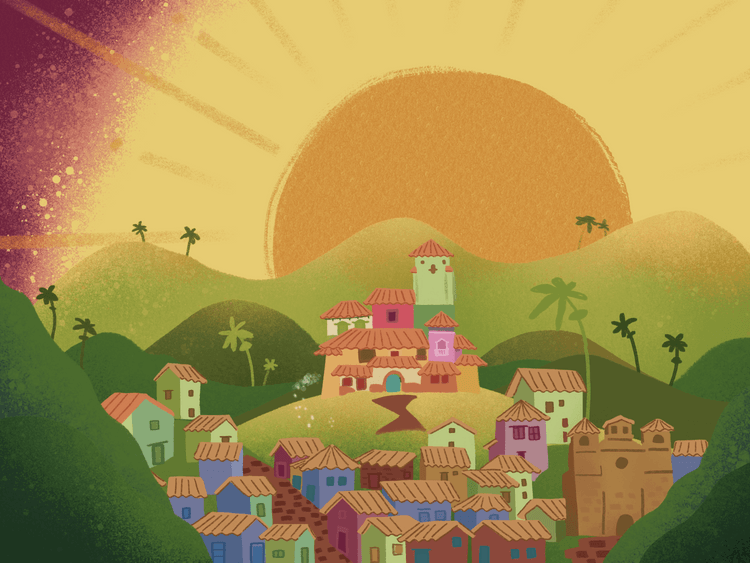
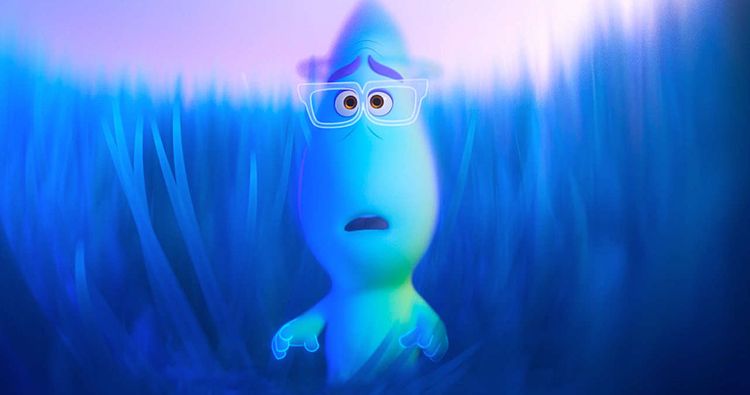

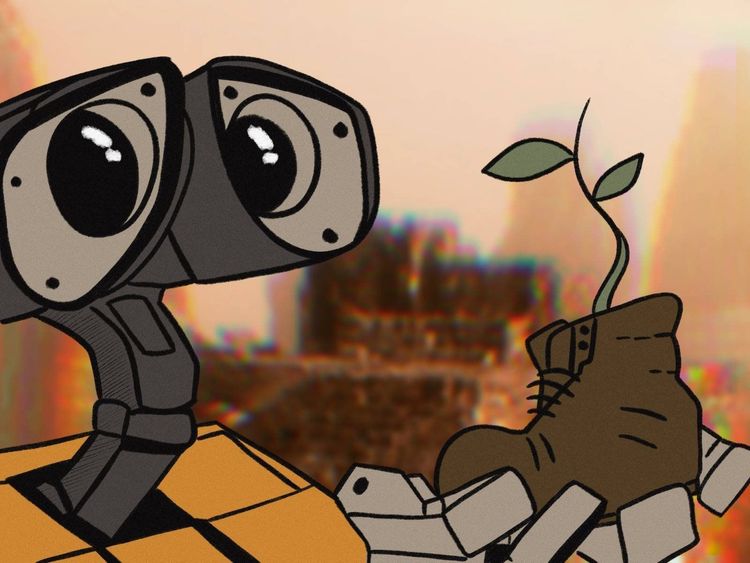
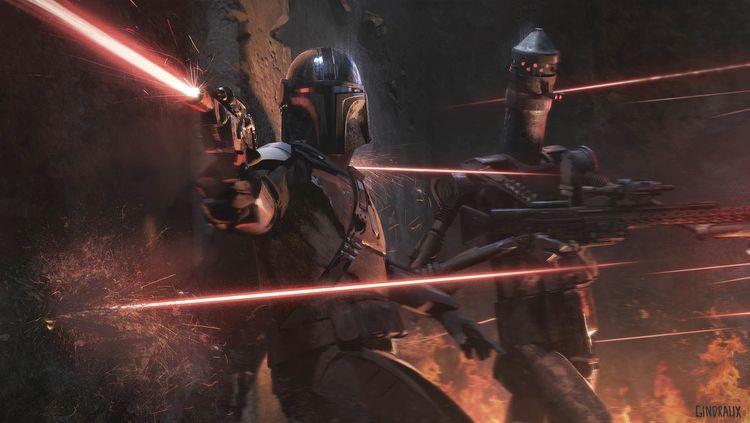
Member discussion